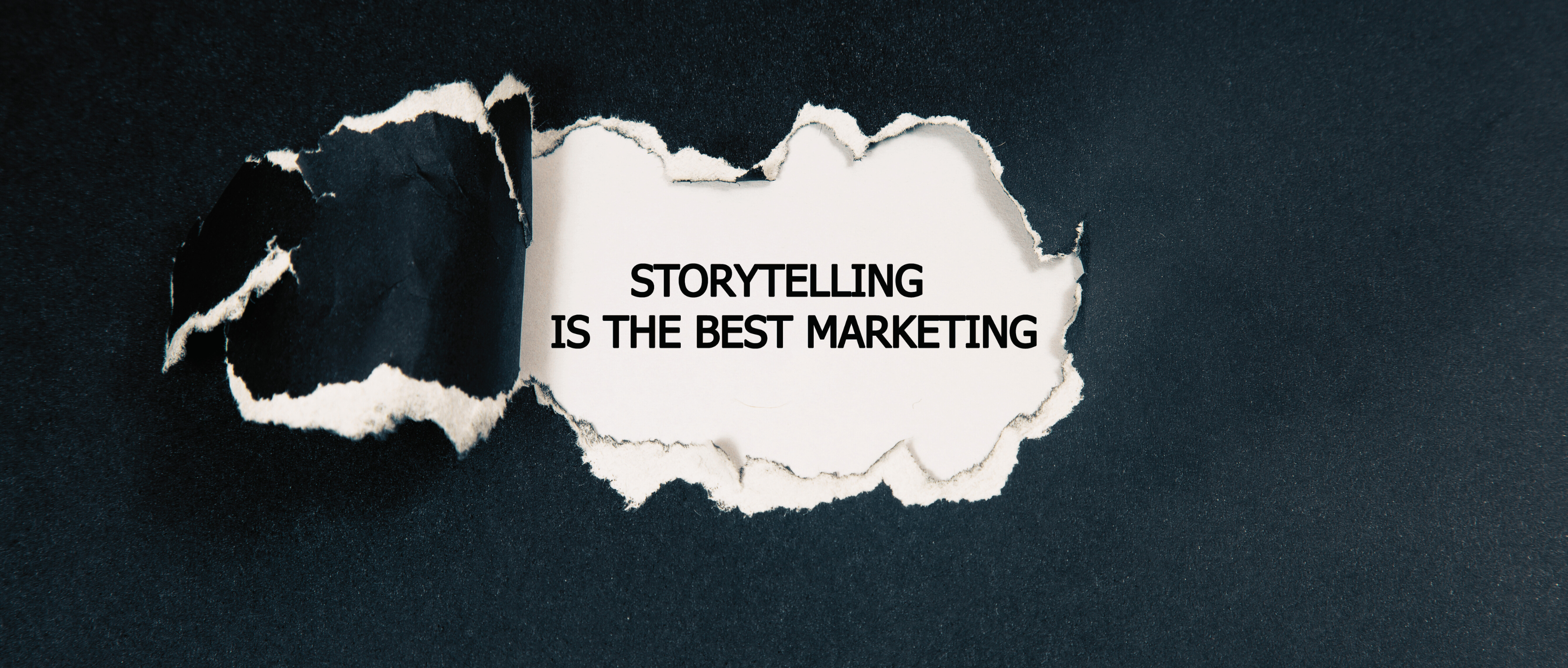Connect Emotionally. Inspire Action. Build Loyalty.
In a digital-first world where consumer attention is more fragmented than ever, what makes a brand stand out isn’t just a product. It’s the story behind it.
Brand storytelling is no longer a creative luxury. It has become a strategic necessity. The brands we admire, remember, and love all have one thing in common: they make us feel something.
They don’t just sell products. They sell purpose, emotion, and connection.
What Is Brand Storytelling and Why Does It Matter?
Brand storytelling is the art of using narrative to share your company’s mission, values, and vision in a way that resonates with your audience. Instead of pushing features or benefits, storytelling pulls people in by creating an emotional experience.
Studies show that:
- 55% of people are more likely to buy from a brand if they love its story
- 44% will share a story they relate to
- 15% are ready to make an immediate purchase
Whether you are a D2C skincare startup, a fashion label, or a tech SaaS company, telling your story with intention can transform your brand into a movement.
The Core Benefits of Strong Brand Storytelling
Clarifies Your Purpose
Your brand story becomes the vehicle to communicate your “why.” It helps customers align with your values and understand your vision.
Builds Emotional Engagement
Emotion drives action. A story that resonates on a personal level increases connection, recall, and ultimately, loyalty.
Creates Memorable Brand Experiences
Facts are forgettable. Stories linger. They help audiences remember you, not just what you sell.
Improves Marketing ROI
Stories enhance every touchpoint including ads, websites, and social media. This leads to higher click-through rates, stronger engagement, and improved conversions.
4 Reasons Brand Storytelling Is the Future of Marketing
1. It Helps You Stand Out in a Crowded Market
With thousands of brands competing for digital attention, your story is your differentiator.
- Nike’s “Just Do It” is more than a slogan. It is a story of grit, courage, and overcoming obstacles.
- Coca-Cola’s “Share a Coke” turned bottles into experiences, connecting the product to meaningful moments.
The key takeaway? Storytelling makes your message memorable and scalable.
2. It Builds a Loyal Brand Community
Strong stories inspire connection. They create communities, not just customers.
- Patagonia integrates sustainability and activism into its brand story, attracting a fiercely loyal and eco-conscious audience.
- Lego encourages creativity and imagination by celebrating user-generated content and fan creations.
When customers see themselves in your story, they feel like part of your brand.
3. It Humanizes Your Brand and Builds Trust
Today’s consumers are values-driven. They want to support brands that care and represent their beliefs.
- Ben & Jerry’s uses storytelling to spotlight causes like social justice and environmental responsibility.
- Airbnb’s “Belong Anywhere” campaign emphasizes personal connection through stories of hosts and guests.
Telling human stories builds trust and long-term loyalty.
4. It Simplifies and Amplifies Your Message
In a world full of noise, clarity is more powerful than cleverness.
- GoPro relies on real user stories and videos to show the value of its product. These stories are authentic and engaging.
- Airbnb simplifies its messaging by focusing on trust, safety, and meaningful travel experiences.
When in doubt, keep it real, clear, and emotionally engaging.
Real-World Mini Case Study: How Airbnb Used Storytelling to Drive Global Growth
When Airbnb evolved from a basic booking platform to a global community brand, storytelling was the driving force behind its growth.
What They Did:
- Launched the “Belong Anywhere” campaign, highlighting real stories of connection
- Shifted messaging from budget travel to meaningful, personal experiences
- Invested in video content, testimonials, and social campaigns featuring hosts and guests
The Result:
- 25% increase in bookings in major markets
- Improved brand loyalty and trust metrics
- Story-driven campaigns outperformed standard performance ads
By allowing users to tell their own stories, Airbnb turned everyday hosts into brand ambassadors.
Lesson: When people feel like they are part of the story, they become emotionally invested in the brand.
Visual Framework: The 5 Elements of a Great Brand Story
- Purpose: Why do you exist beyond making money?
- Character: Who is the hero — the founder, customer, or community?
- Conflict: What challenge do you help solve?
- Resolution: How does your brand deliver transformation?
- Emotion: What lasting feeling do you want to leave with the audience?
Use this framework consistently across your website, social platforms, packaging, and campaigns.
How to Craft a Brand Story That Converts
Follow this simple structure to build your story:
- Start with your origin: What inspired you to start the brand?
- Define your audience: Who are they, and what do they care about?
- Clarify your impact: How do your products or services improve lives?
- Keep your tone consistent: Be bold, warm, empowering — whatever fits your brand identity.
- Let your customers speak: Use real stories, reviews, and user-generated content to build trust.
In an era driven by content, algorithms, and short attention spans, brand storytelling is your most powerful tool for cutting through the noise.
It creates emotional resonance, builds loyalty, and turns your brand into something people remember and talk about.
By crafting stories your audience believes in and connects with, you don’t just sell a product. You build a legacy.
Great brands don’t just tell stories.
They become stories worth telling.
FAQs on Brand Storytelling
Q1. What is brand storytelling in marketing?
Brand storytelling uses narrative to share a company’s values, mission, and purpose in a way that emotionally connects with its audience.
Q2. Why is storytelling important for branding?
It humanizes your brand and makes it memorable. Storytelling fosters trust, emotional engagement, and brand loyalty.
Q3. How do I write a compelling brand story?
Begin with your purpose, introduce a relatable hero, highlight a conflict or problem, and end with a transformation or solution.
Q4. What are some great brand storytelling examples?
Nike, Airbnb, Patagonia, Lego, and Ben & Jerry’s all use strong narratives to connect emotionally with their customers.
Q5. How does storytelling help customer engagement?
It creates a dialogue with your audience. People become part of the brand journey, leading to increased engagement and advocacy.
Q6. Can small businesses use storytelling effectively?
Yes. In fact, smaller businesses often have more authentic and relatable stories that resonate strongly with their customers.


